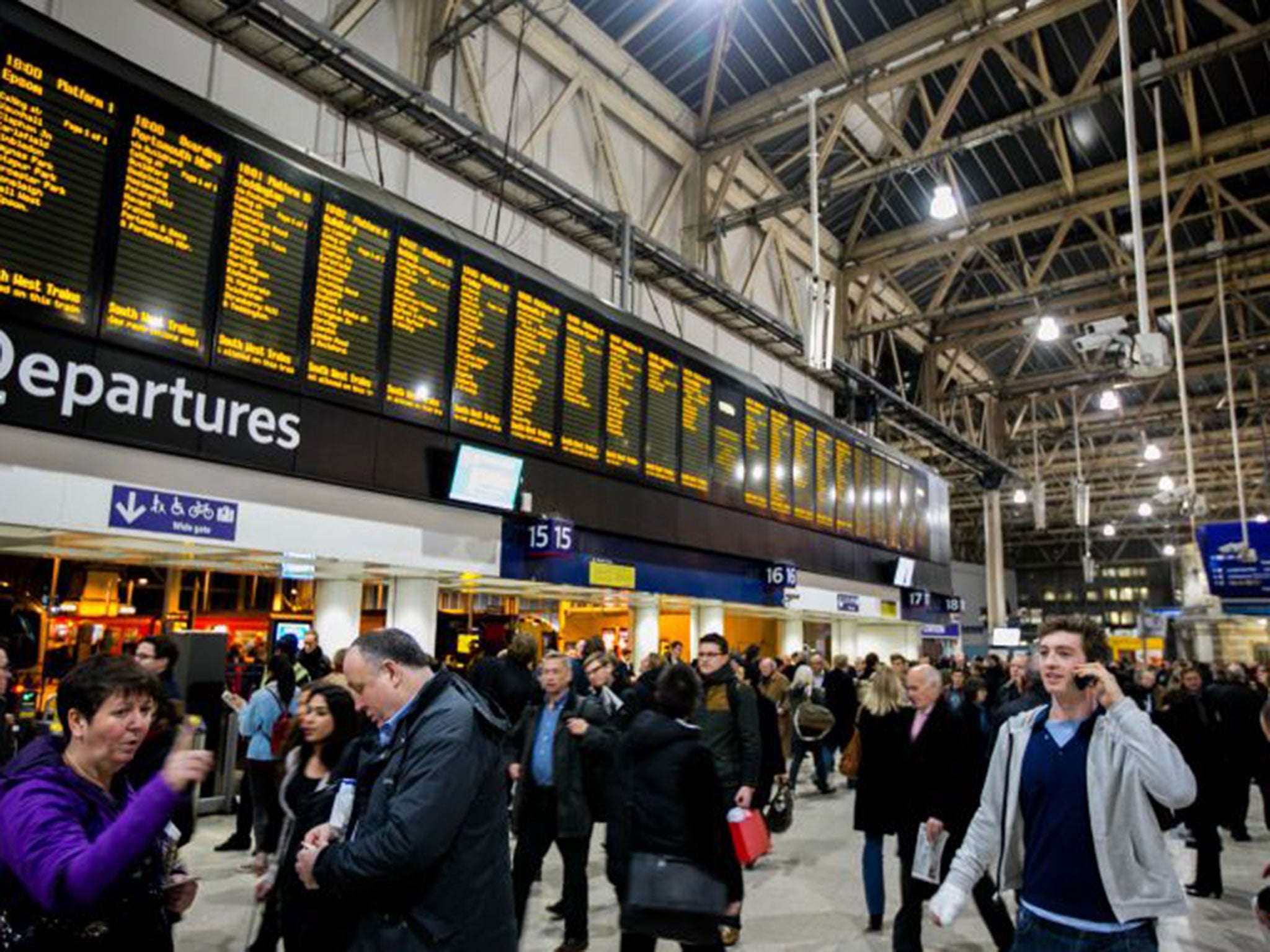Our railways will not improve until someone takes responsibility for the chaos
The by-now annual closure of parts of the network between Christmas and the New Year is deeply frustrating. Shoppers might find what they’re looking for with the help of a few clicks, but some family get togethers will doubtless be stymied and those who have to work during this period are likely to be especially badly hit

As the post-Christmas sales crank into action, high street retailers in some of the UK’s biggest cities – including London, Cardiff and Manchester – will curse the rail operators who have decided that now is just the time to carry out engineering works. Online shopping is already close to becoming as popular as the traditional, real-life queue; throw in a railway shutdown and it’s easy to see why punters might prefer to buy their half price Thomas the Tank Engine books or DVDs from the comfort of their own home. If only virtual rail journeys were as effective as virtual shopping.
Labour, naturally enough, is seeking to make political capital out of the situation, accusing the Conservative Party of hypocrisy for having criticised Boxing Day cancellations in opposition yet having done nothing to improve the situation in Government. The shadow Transport Secretary Andy McDonald has channelled Bob Cratchit, suggesting that the Tories are to blame for families not being able be together at the festive season.
True enough, the by-now annual closure of parts of the network between Christmas and the New Year is deeply frustrating. Shoppers might find what they’re looking for with the help of a few clicks, but some family get-togethers will doubtless be stymied and those who have to work during this period are likely to be especially badly hit. Then again, the life of a commuter is pretty miserable at the best of times; the worst of times are only a short hop away – probably on a delayed train.
Indeed, for all the hand-wringing, the truth is that there is never a great time to carry out necessary engineering works on the railways. Holiday periods are probably the preferable choice in terms of the overall number of individuals affected. And ultimately, the problem is not a consequence of short-term planning failures but of the much more prolonged under-investment that left Britain’s railways in such poor shape by the time of privatisation two decades ago.
There is currently a great nostalgia for the days of British Rail; and the months-long dispute involving the Southern franchise has done little to spoil the view through rose-tinted spectacles. Yet it was under state ownership that the network suffered arguably its darkest days. Pinning the blame for the present difficulties solely on the vagaries of a franchise-based operation (or even the disjunction between operators and Network Rail) is ultimately wrong-headed.
Nevertheless, it is easy to understand why the case for renationalising the railways has its enthusiasts. The current system is both complex and confusing. The separation of responsibility for track maintenance and train running always seemed particularly likely to create more problems than it solved. Chris Grayling, the Transport Secretary, plans to improve coordination between the operators and Network Rail, although that in itself won’t suddenly result in perfect services overnight. Moreover, almost anything Grayling does is likely to raise the suspicions of the unions. The recent revelation that he wrote to Boris Johnson when the latter was Mayor of London, calling on him not to let Transport for London take over suburban rail services for fear that a future Labour mayor might then get his or her hands on part of the network, strongly suggested that Grayling puts political ideology above pragmatism.
Perhaps, in the end, this is the railways’ greatest trouble: nobody really wants to be accountable for them. Governments shift the blame onto operators; operators blame wider structural defects or the unions; everyone blames leaves on the line. Passengers, especially the increasing number who rely on trains to get them to and from work, despair at the price and the quality but can do little more than keep calm and carry on. Quite what the Rev W Awdry would make of it all is anyone’s guess.
Join our commenting forum
Join thought-provoking conversations, follow other Independent readers and see their replies
Comments
Bookmark popover
Removed from bookmarks